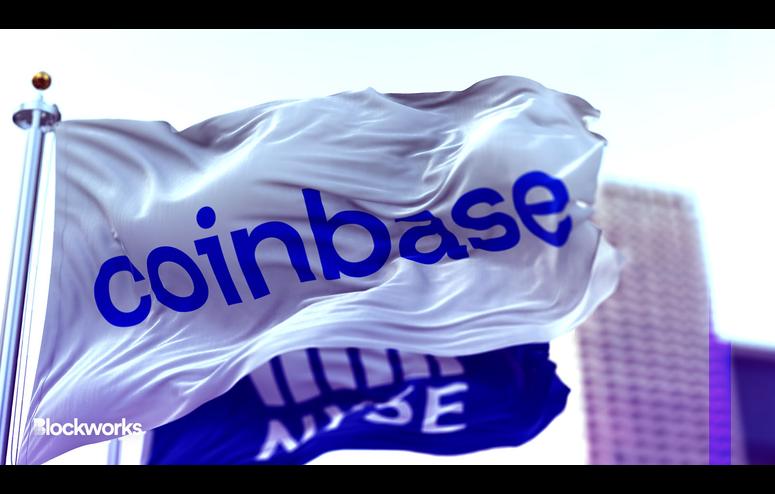Coinbase’s $100M Settlement, Largest Since BlockFi
TL;DR Coinbase agreed to pay a $50 million fine as well as a further $50 million that will go towards its compliance practices in a settlement with regulators. The settlement marked the industry’s largest in almost a year and one of the largest to date. Other notable settlements include BlockFi ($100 million), Bitfinex parent ($18.5 million), Block.One ($24 million) and Telegram ($18.5 million).

Coinbase’s settlement with regulators on Wednesday has marked the industry’s largest in almost a year and one of the largest to date.
The New York State Department of Financial Services (NYDFS) found the exchange violated anti-money laundering laws in 2018 and 2019 by allowing customers to open accounts without complete background checks.
As such, Coinbase has agreed to pay a $50 million fine as well as a further $50 million that will go towards its compliance practices, per the agreement laid out in the settlement.
Coinbase’s latest regulatory snafu follows a previous $6.5 million settlement in a civil penalty with the Commodities and Futures Trading Commission in March 2021.
The exchange was accused of delivering false, misleading, or inaccurate reports relating to transactions on a trading platform it operated known as GDAX.
The settlement amount is similar to NYDFS previous money laundering-related fines of financial giants such as Deutsche Bank ($150 million in 2020) and Wells Fargo ($65 million in 2018).
What follows is a roundup of the industry’s most significant settlements with US regulators in relation to dollar amounts and terms laid out in the legal agreements stretching back to 2019.
BlockFi Fined $100 Million over interest-bearing products
In February of last year, now-bankrupt crypto lender BlockFi was ordered to pay $50 million in fines to the Securities and Exchange Commission and a further $50 million to various state regulators.
It was alleged at the time the lender had illegally offered a high-interest yield product, known as BlockFi Interest Account (BIA), which had allowed users to lend out their crypto for up to 9.25% in annual percentage yield.
US customers were prohibited from opening any new interest-yielding accounts, and existing accounts were converted to “BlockFi Yield” under an existing regulatory-compliant framework.
BlockFi later filed for Chapter 11 bankruptcy on Nov. 28 following the collapse of FTX.
Bitfinex parent pays $18.5 million over alleged $850 million cover-up
Roughly one year before BlockFi’s settlement, crypto exchange Bitfinex’s parent agreed to pay an $18.5 million fine to the New York Attorney General’s office to settle charges it had engaged in a cover-up to hide the loss of hundreds of millions in client funds.
Hong Kong-based iFinex Inc, also the parent of stablecoin issuer Tether, was required to halt trading activity with New Yorkers as part of the deal.
Bitfinex was accused of having sent $850 million to Panama-based payments processor Crypto Capital Corp without first telling clients. After funds went missing, it was alleged the exchange siphoned $700 million from Tether’s stablecoin reserves to cover the shortfall.
In October, 2021, Tether settled with the CFTC for $42.5 million over the agencies allegations that Tether misrepresented the reserves backing of USDT.
Block.One pays $24 million to settle charges over unregistered ICO
Block.One, the company behind the EOS cryptocurrency, reached a settlement with the Securities and Exchange Commission in October 2019, agreeing to pay a $24 million fine for conducting an unregistered securities sale
Its initial coin offering of 900 million EOS tokens first began way back in June 2017, and is considered the largest ICO in history, having raised some $4.1 billion.
As per the legal agreement, Block.One later settled the charges without admitting or denying the findings by the federal regulator.
Telegram fined $18.5 million, forced to repay $1.2 billion from ICO sale
Also in October 2019, the SEC filed a complaint against the parent of social media platform Telegram, alleging the company raised more than $1.2 billion from the illegal securities sale of 2.9 billion Grams — a proposed utility token.
At the time, the SEC alleged Grams had been sold via an initial coin offering to some 171 initial purchasers around the globe and sought to restrain Telegram from any further sales.
The US Southern District Court of New York later agreed with the SEC’s findings in March 2020 and issued an injunction barring any further sale of Grams. Without admitting or denying the allegations, Telegram agreed to pay $18.5 million in a civil penalty.
Up until last year, Telegram was also required to notify the SEC before embarking on any further issuance of digital assets. Telegram was also forced to repay the $1.2 billion back to investors.
Although Telegram was prohibited from pursuing its centralized blockchain development plans, the underling open-source code was used to launch the community-driven TON project. The team behind Telegram’s Messenger app is now building upon the same technology it previously developed in-house.
Get the day’s top crypto news and insights delivered to your inbox every evening. Subscribe to Blockworks’ free newsletter now.
Can’t wait? Get our news the fastest way possible. Join us on Telegram.
